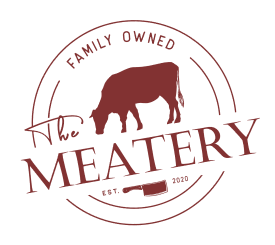Discover the secrets behind Wagyu beef's exceptional quality, unique marbling, and incomparable taste that justifies its high price tag. Explore the reasons why it is a culinary experience worth trying.
Wagyu beef has been making waves in the culinary world, gaining a reputation for its exceptional quality and unique flavor profile. Despite its high price tag, many food enthusiasts and gourmets argue that the taste and experience of indulging in Wagyu beef justify the cost. In this article, we will dive deep into the world of Wagyu beef and explore the reasons why it is worth the hype and the high price tag.
The Origin of Wagyu Beef
Wagyu beef hails from Japan, with the term "Wagyu" meaning "Japanese cow." The unique characteristics of Wagyu beef are the result of a centuries-old practice of selective breeding. Japanese cattle farmers bred their cows for specific traits, such as high-quality marbling, resulting in the exceptional beef we know today.
The Unique Marbling
One of the defining features of Wagyu beef is its extraordinary marbling. Marbling refers to the thin veins of intramuscular fat that run through the meat, giving it a tender, melt-in-your-mouth texture. The fat in Wagyu beef is distributed more evenly than in other types of beef, leading to a richer, more flavorful taste.
Wagyu Beef Grading System
Wagyu beef is graded based on its marbling, color, and texture, with a grading system that ranges from A1 to A5. A5 is the highest grade, signifying the finest quality of Wagyu beef. The higher the grade, the better the marbling, which translates to a more tender, flavorful, and enjoyable eating experience.
The Different Types of Wagyu Beef
There are four main types of Wagyu beef, each originating from different regions in Japan. These types include Japanese Black, Japanese Brown, Japanese Shorthorn, and Japanese Polled. The most famous and sought-after type is the Japanese Black. This is renowned for its high-quality marbling and exceptional taste.
The Health Benefits
Wagyu beef is not only delicious but also boasts several health benefits. The fat in Wagyu beef is primarily monounsaturated. This helps lower cholesterol levels and reduce the risk of heart disease. Additionally, Wagyu beef is rich in omega-3 and omega-6 fatty acids, which support brain function and overall health.
Raising Wagyu Cattle
The process of raising Wagyu cattle is labor-intensive and time-consuming, contributing to the high price of the beef. Farmers take great care in ensuring the cattle's well-being, providing them with a stress-free environment, high-quality feed, and attentive care. This dedication to the welfare of the cattle is essential in producing the high-quality, tender, and flavorful beef that Wagyu is famous for.
Cooking and Enjoying Wagyu Beef
Wagyu beef is best enjoyed when cooked with care to preserve its unique flavors and textures. Common methods of preparation include searing, grilling, and sous vide. When cooking Wagyu beef, it is essential to avoid overcooking, as this can diminish its prized qualities. A light seasoning of salt and pepper is often all that is needed to enhance the natural flavors of the beef.
The Global Wagyu Market
The global demand for Wagyu beef has increased significantly over the past few decades. With its growing popularity, many countries outside of Japan have started breeding Wagyu cattle to meet the demand. While these international varieties may not be as highly regarded as authentic Japanese Wagyu, they still offer a high-quality, flavorful beef experience.
The High Price Tag Explained
Wagyu beef's high price tag is a result of several factors, including the meticulous care required in raising the cattle. The limited supply of authentic Japanese Wagyu, and the time-consuming process of selective breeding. Additionally, the beef's exceptional taste, texture, and health benefits contribute to its high value in the eyes of gourmet and food enthusiasts.
Wagyu Beef Alternatives
For those who desire a Wagyu-like experience without the hefty price tag, there are some alternatives available. American Wagyu, Australian Wagyu, and hybrids of Wagyu and Angus cattle can provide a similar taste and texture at a more affordable price point. While these alternatives may not entirely replicate the experience of authentic Japanese Wagyu, they offer a delicious and more accessible option for beef lovers.
Frequently Asked Questions
-
What makes Wagyu beef so special? Wagyu beef is known for its exceptional marbling, tenderness, and unique flavor profile, which sets it apart from other types of beef.
-
Is Wagyu beef healthy? Yes, Wagyu beef has several health benefits due to its high content of monounsaturated fats, omega-3, and omega-6 fatty acids.
-
Why is Wagyu beef so expensive? The high price of Wagyu beef is attributed to the time-consuming and labor-intensive process of raising cattle. As well as its limited supply of authentic Japanese Wagyu, and its exceptional taste and health benefits.
-
How should Wagyu beef be cooked? Wagyu beef should be cooked with care, using methods such as searing, grilling, or sous vide. Overcooking should be avoided to preserve its unique qualities.
-
What is the difference between Japanese Wagyu and American Wagyu? Japanese Wagyu refers to beef from cattle bred and raised in Japan, while American Wagyu comes from cattle bred and raised in the United States. American Wagyu may not have the same level of marbling and flavor as authentic Japanese Wagyu but is still considered a high-quality, delicious beef option.
-
Are there any affordable alternatives to Wagyu beef? Yes, alternatives such as American Wagyu, Australian Wagyu, and Wagyu-Angus hybrids offer a similar taste and texture at a more accessible price point.
-
What does the Wagyu grading system mean? The Wagyu grading system evaluates the beef's marbling, color, and texture, with A5 being the highest grade, indicating the finest quality of Wagyu beef.
-
What are the different types of Wagyu beef? The four main types of Wagyu beef are Japanese Black, Japanese Brown, Japanese Shorthorn, and Japanese Polled. Japanese Black is the most famous and sought-after type due to its high-quality marbling and exceptional taste.
-
Can I find authentic Wagyu beef outside of Japan? While authentic Japanese Wagyu beef can be found in select high-end restaurants and specialty stores outside of Japan, most Wagyu beef available internationally comes from countries like the United States and Australia.
-
Is it worth trying Wagyu beef at least once? Yes, trying Wagyu beef at least once is highly recommended for food enthusiasts and gourmets. Its unique taste, texture, and culinary experience make it worth the investment.
Wagyu beef has earned its reputation as a luxury food item. Thanks to its exceptional marbling, tenderness, and rich flavor profile. The combination of its origin, careful breeding practices, and the dedication of farmers to raising cattle contribute to the high price tag. Despite its cost, Wagyu beef offers a unique and unforgettable culinary experience that is worth trying at least once in a lifetime.
For those who cannot justify the expense, more affordable alternatives such as American Wagyu, Australian Wagyu, and Wagyu-Angus hybrids provide a similar, albeit not identical, taste and texture. Regardless of the type of Wagyu beef you choose to indulge in, this premium beef is a testament to the extraordinary heights that culinary excellence can achieve.









